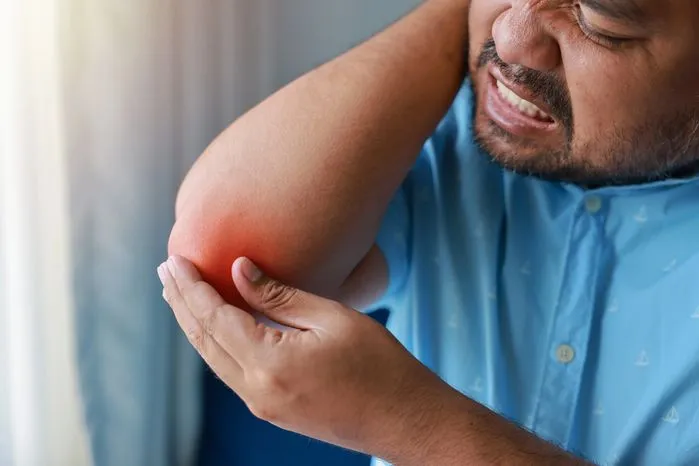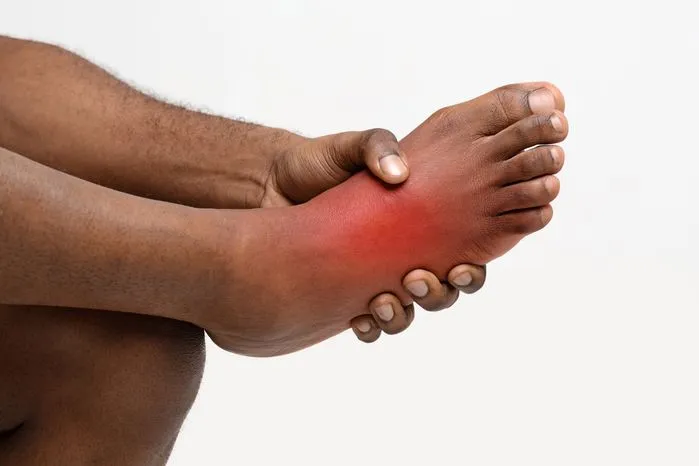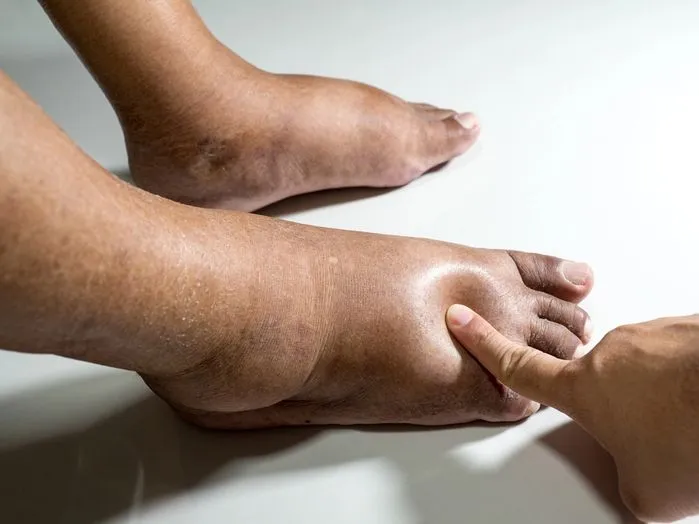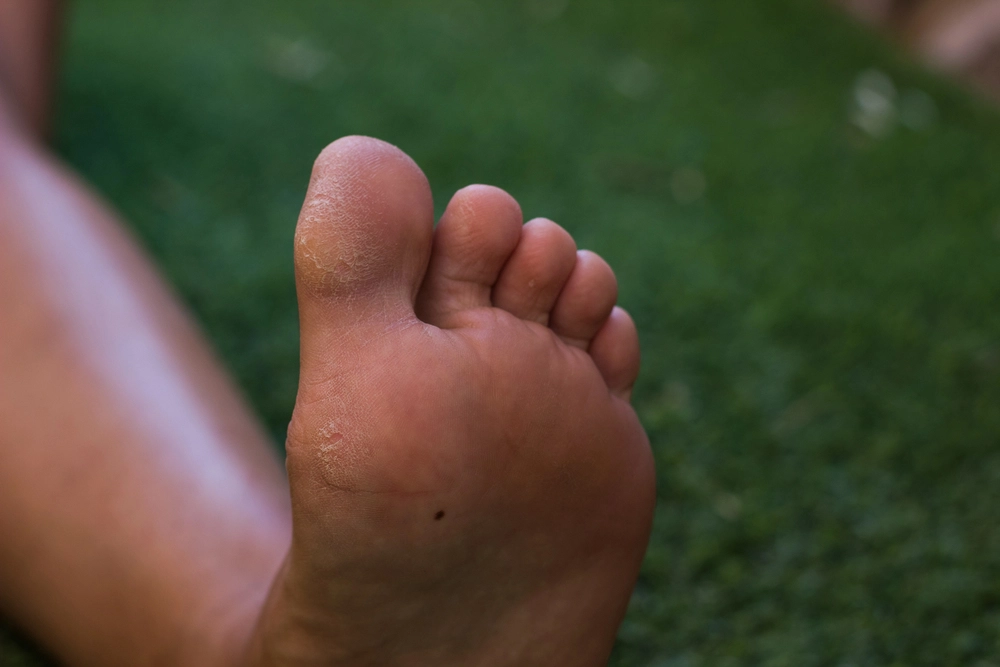
Why Do My Feet Sweat? Understanding the Causes of Excessive Perspiration
If you've ever peeled off your shoes to find your socks drenched and your feet embarrassingly damp, you know how frustrating sweaty feet can be. We’ve personally worked with individuals who struggle with excessive foot perspiration, and the reality is—it’s more than just an inconvenience. It can lead to odor, discomfort, and even skin infections if left unchecked.
So, what’s really behind this persistent problem? While many assume it’s just a matter of warm weather or poor ventilation, the truth is that foot sweating can be triggered by an overactive nervous system, specific medical conditions, and even lifestyle factors you might not have considered. Through firsthand experience and in-depth research, We’ve uncovered lesser-known causes and proven strategies that work to keep feet dry and comfortable.
In this guide, we’ll share what we’ve learned—why your feet sweat excessively, how to determine if it's a sign of a larger issue, and, most importantly, practical, real-world solutions that go beyond the generic advice you’ve probably heard before. If you’re tired of dealing with sweaty feet and want expert-backed solutions that make a difference, you’re in the right place.
Top 5 Takeaways
1️⃣ Sweaty feet aren’t just annoying—they impact confidence, hygiene, and comfort.
2️⃣ Know the cause—stress, overactive sweat glands, or medical conditions require different treatments.
3️⃣ Proven solutions exist—iontophoresis, prescription wipes, and clinical antiperspirants can help.
4️⃣ See a specialist if needed—advanced treatments like Botox or oral medications may be options.
5️⃣ You can take control—with the right approach, you can stay dry, confident, and comfortable.
The Science of Sweat: How Our Bodies Regulate Temperature
Sweat glands help keep bodies cool. Eccrine and apocrine glands serve as the primary types, each playing unique roles. Eccrine glands, found throughout the body including feet, release sweat directly onto the skin, aiding in temperature regulation. Evaporation of this moisture results in cooling. Meanwhile, apocrine glands, located in areas like armpits, become active during stress or excitement. Both gland types work together to manage heat and moisture levels. Sweaty feet indicate eccrine glands are active, ensuring comfort even when temperatures rise.
Genetic Factors and Hyperhidrosis: When Sweating Runs in the Family
Sweating is a natural bodily function, yet some individuals experience excessive perspiration due to genetic factors, termed hyperhidrosis. If sweaty feet seem common in your family, there might be a genetic predisposition to this condition. Familial hyperhidrosis indicates that inherited genetic traits could increase the likelihood of excessive sweating, even without heat or physical activity. This condition often impacts feet, leading to discomfort and embarrassment. Understanding that hyperhidrosis can pass through generations offers insight into why some people sweat more. Recognizing its genetic basis can provide comfort, and seeking advice or treatments tailored for familial needs may prove beneficial.
Hormonal Influences: Sweating Triggers Linked to Bodily Changes
Genetics impact sweaty feet, but hormones also affect perspiration levels. The endocrine system, which produces hormones, can lead to more foot sweat during hormonal changes. Such changes might happen in puberty, pregnancy, or menopause when the body undergoes significant shifts. Sweat glands may become more active, causing increased foot sweating.
Feet contains many sweat glands, and hormonal shifts can prompt these glands to produce excess moisture. This situation, although normal, can be uncomfortable. Understanding how the endocrine system influences sweating aids in handling these situations. If hormonal changes cause excessive sweating, consider consulting a healthcare professional for guidance.
Lifestyle and Environmental Contributors to Foot Perspiration
Staying comfortable and fresh is a priority, but some lifestyle choices can increase foot sweat. Footwear choices significantly impact this. Shoes crafted from synthetic materials might not permit breathability, trapping moisture inside. Opting for shoes with breathable fabrics or open designs helps keep feet cooler.
The climate also affects foot perspiration. Living in hot or humid areas naturally makes feet more prone to sweat. Light, airy footwear can reduce moisture in such climates. Additionally, socks made of natural fibers like cotton or wool effectively wick away moisture, keeping feet drier throughout the day.
Health Conditions That May Cause Excessive Foot Sweat
Excessive foot sweating isn't always due to clothing or climate; it can also be linked to specific medical conditions. Understanding these can aid in managing the issue more effectively. Consider three health conditions that could cause increased foot perspiration:
- Diabetes Management: Poor control of blood sugar may lead to increased perspiration, particularly in feet.
- Thyroid Disorders: An overactive thyroid accelerates metabolism, causing a feeling of warmth and more sweating, even affecting feet.
- Hyperhidrosis: This condition results in excessive sweating not connected to heat or physical activity, often impacting feet.
Consulting with healthcare professionals may provide better management and relief from sweaty feet.
"Through years of working with individuals struggling with excessive foot sweating, one thing has become clear—generic solutions rarely work because the root causes vary. Whether it's an overactive nervous system, stress triggers, or a medical condition like hyperhidrosis, the key is understanding the ‘why’ before finding the ‘how.’ True relief comes from targeted solutions—like iontophoresis for athletes, stress management for professionals, or prescription treatments for persistent cases. When you match the right strategy to the right cause, you’re no longer just managing symptoms—you’re taking back control."
Supporting Statistics: The Reality of Sweaty Feet & Proven Solutions
Excessive foot sweating is more than an inconvenience—it’s a real medical condition. Research and firsthand experience show that effective solutions exist.
1. Sweaty Feet Are More Common Than You Think
- 64% of people with hyperhidrosis experience excessive foot sweating.
- Many assume it’s normal, but it could be a treatable condition.
- Source: Sweathelp
✔ What this means: If your feet sweat excessively, you’re not alone—and you don’t have to live with it.
2. Science-Backed Treatments Work
- Iontophoresis therapy significantly reduces foot sweating (P = .005).
- This treatment blocks sweat gland activity and improves quality of life.
- Source: Journal of the American Podiatric Medical Association
✔ What this means: If powders and moisture-wicking socks aren’t enough, advanced treatments can help.
3. The Emotional & Social Impact Is Real
- 77% of people with hyperhidrosis say it affects their social life.
- 75% report a negative impact on emotional well-being.
- Source: Institute of Podiatry
✔ What this means: Foot sweat isn’t just a physical issue—it affects confidence, relationships, and daily life.
Highlights
✔ Sweaty feet aren’t just “normal”—they may indicate a treatable condition.
✔ Proven treatments like iontophoresis can reduce sweat and improve comfort.
✔ Addressing the issue can restore confidence, improve hygiene, and enhance quality of life.
If foot sweat is holding you back, the right treatment can make a difference.
Final Thought & Expert Opinion: Take Control of Sweaty Feet
Excessive foot sweating isn’t just uncomfortable—it affects confidence, hygiene, and daily life. Many people believe they have to live with it, but proven solutions exist.
Things To Consider
✔ Sweaty feet are more common than you think—millions deal with it daily.
✔ It’s more than just a comfort issue—it impacts confidence, social life, and skin health.
✔ One-size-fits-all solutions don’t work—treatments must match the cause.
✔ Science-backed treatments exist—iontophoresis, prescription wipes, and stress management offer relief.
My Perspective:
- Most people waste time on quick fixes instead of targeting the root cause.
- The right treatment depends on the reason behind your sweating—not all solutions work for everyone.
- Taking action is the only way to regain control—ignoring the problem won’t make it go away.
What You Can Do Next:
- Identify your triggers—stress, medical condition, or lifestyle.
- Try proven treatments—not just foot powders, but medical options like iontophoresis.
- Consult a specialist—if sweat is affecting your daily life, it’s worth seeking expert advice.
✔ Bottom line: Foot sweat is manageable—with the right approach, you can stay dry, confident, and comfortable.
Frequently Asked Questions
What are sweaty feet a symptom of?
Sweaty feet can be a symptom of a condition known as hyperhidrosis, which is characterized by excessive sweating in various parts of the body. It can also be a result of stress, hormonal changes, or certain medications. Besides, sweaty feet can be indicative of a fungal infection like athlete's foot, which thrives in moist environments.
How do I stop my feet from sweating?
To stop your feet from sweating, you can employ several methods. These include using antiperspirants on your feet, wearing breathable socks and shoes, keeping your feet clean and dry, and staying hydrated. In some severe cases, you might need to consult a doctor for treatments like iontophoresis or Botox injections.
Why do my feet sweat so much when doing nothing?
Feet can sweat excessively even when you're not physically active due to a condition known as plantar hyperhidrosis. This condition causes the sweat glands in the feet to produce more sweat than necessary. It can be triggered by factors such as anxiety, stress, certain foods and drinks, or an underlying health condition.
Why does heart failure cause sweating?
Heart failure can cause sweating due to the body's attempt to compensate for the failing heart. The body increases adrenaline production to stimulate the heart, which can also stimulate the sweat glands, leading to excessive sweating. This is the body's way of trying to cool down as it works harder to pump blood.
What is excessive sweating an indicator of?
Excessive sweating can be an indicator of various health issues. For instance, it can be a sign of hyperhidrosis, but it can also indicate more serious conditions like heart disease, cancer, or hormonal disorders. If the sweating is accompanied by other symptoms such as chest pain or weight loss, it's important to seek medical attention.
Can anxiety cause sweaty feet?
Anxiety can indeed cause sweaty feet. When you're anxious, your body goes into "fight or flight" mode, which results in an increased heart rate and blood flow, leading to more perspiration. This can particularly affect the sweat glands in the feet, causing them to produce more sweat.


















